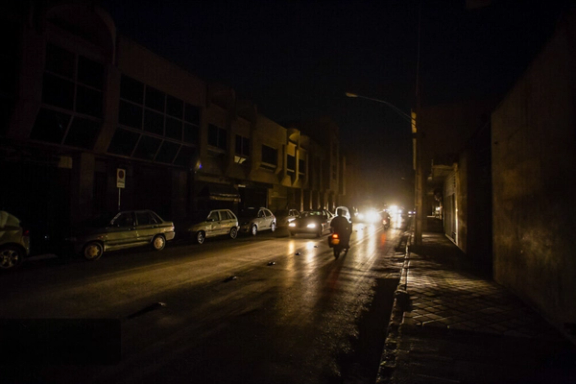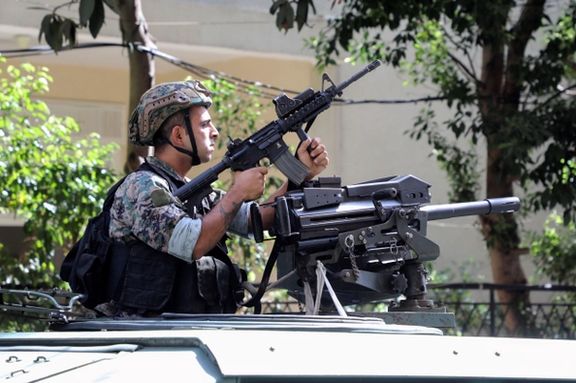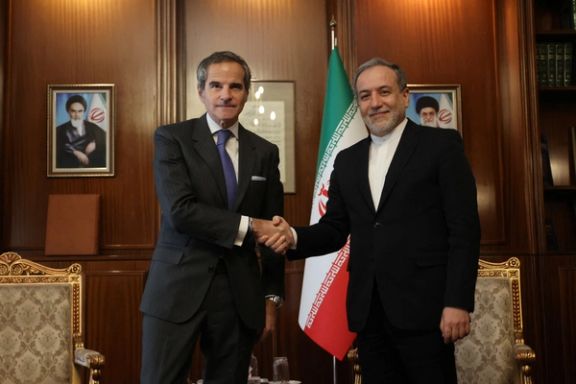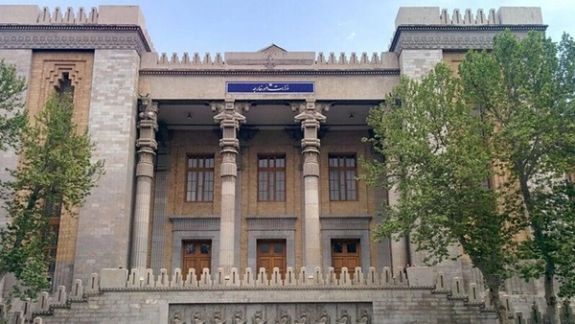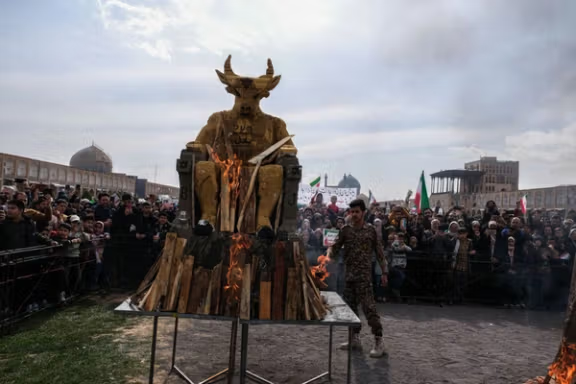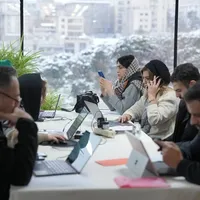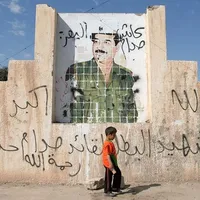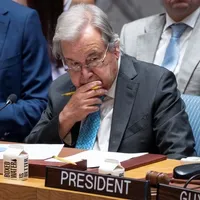The planned censure is likely going through despite Tehran offering to cap its highly enriched uranium stock.
France, Britain, Germany, and the United States will introduce the resolution at Wednesday's meeting of the International Atomic Energy Agency (IAEA) Board of Governors, Iran International has learned.
Iran and nuclear experts agree on one thing: Trump’s return to the White House will have an impact on the Islamic Republic, but whether and how the incoming administration and the Islamic Republic may engage on the nuclear issue is up for debate.
The Iranian establishment has concern over the censure because of the approaching October 20, 2025 deadline for UN restrictions to be fully lifted. That’s when most restrictions against Tehran's nuclear program will be removed under the UN Security Council Resolution 2231, and the West will no longer be able to apply “snapback” sanctions.
A prior censure was made in June of this year, but it didn't seem to make any difference, however, experts point out the political climate was different a few months ago.
The Europeans could activate or trigger the mechanism, bringing back all of the previously lifted UN sanctions.
Sina Azodi, a professor and researcher at George Washington University, told Iran International that the Islamic Republic would try to avoid internationally mandated sanctions from a political standpoint because it doesn’t serve their interests.
“Iran is under sanctions, but they are US unilateral sanctions. They are not internationally mandated sanctions of the United Nations. From a political standpoint, Iran would try to avoid a snapback of UN sanctions, especially since they're less than a year away from those sanctions to be completely lifted,” said Azodi who specializes in Iran's nuclear and foreign policies.
Iran’s Foreign Minister Abbas Araghchi made comments on Iranian State TV Saturday suggesting that a diplomatic route on Iran’s nuclear ambitions still exists.
"We believe the window for diplomacy is still open, albeit for a short time, provided the other parties demonstrate genuine willingness. Without such commitment, we will pursue an alternative course, "said Araghchi.
Araghchi also said that Iran’s intentions were conveyed to the IAEA chief Rafael Mariano Grossi during his latest trip to the Islamic Republic last week. Iran offered not to expand its stockpile of uranium enriched up to 60% during his visit.
Gregory Brew, an Iran analyst with the Eurasia Group, noted that while Iran appears to signal a willingness to make concessions, it insists on doing so strictly on its own terms.
“Iran will deal, but only if they get what they want—sanctions relief—without having to make sweeping concessions on either their program or other elements of their foreign policy,” said Brew.
Despite the rhetoric, Iran’s actions are proving otherwise.
Tehran has increased its stockpile of enriched uranium to near weapons-grade levels, according to the Associated Press, which viewed a confidential report by the United Nations' nuclear watchdog Tuesday.
Uranium enriched at 60% purity is just a short step away from weapons-grade levels of 90%.
With Trump’s second term around the corner – and Iran’s deterrence proxies Hamas and Hezbollah taking a severe blow by Israel – that leaves Tehran in a predicament.
Does it double down towards nukes or try to deal with the future president, which US intelligence reports say Iran tried to assassinate?
Brew said Trumps’ return was always an element of thinking for Iran, but they are still playing it the same as with the Biden-Harris administration, wanting sanctions relief and will - as he described it - play it nice - until 2231 resolution expires. Then Iran can likely negotiate without JCPOA commitments.
Andrea Stricker, the Deputy Director and Research Fellow at FDD’s Nonproliferation & Biodefense Program, told Iran International that if Tehran makes concessions, it’s because of the incoming US president's use of peace through strength and maximum pressure.
“Tehran sees the writing on the wall that with Trump coming back into office and the E3 also prepared to increase pressure against the regime, that snapback is likely inevitable. It will seek to evade restored sanctions with the help of its patrons Russia and China, and its partner North Korea,” said Stricker.
Stricker said Trump’s maximum pressure will force Iran to tone down its nuclear ambitions and aggression in the region and that if a deal is possible, it would only be due to maximum pressure and fear of Trump.
She said Iran is fearful of Trump who ordered the assassination of General Qasem Soleimani in a targeted strike in Iraq in 2020, withdrew from the Iran nuclear deal, and re-imposed sanctions aimed at cutting Iran's oil sales to zero.
The reported enrichment of uranium stockpiles, Stricker views, as a form of blackmail to the West to prevent the censure and the snapback on UN sanctions.
“It's too little, too late,” she added.
Azodi told Iran International that Tehran has historically reacted with anger to IAEA resolutions. Based on Iran’s behavior, Azodi sees a strong possibility that Tehran would expand their nuclear program to increase the number of centrifuges and inaugurate a new centrifuge center, but he refers to it as a diplomatic play – and not a serious ploy for a bomb.
He’s doesn’t believe Iran would go for a bomb, citing that Israel and the US would do everything in their power to prevent it.
Israeli Prime Minister Benjamin Netanyahu and Trump have repeatedly said that they would not allow Iran to become a nuclear power.
With that knowledge, Azodi said a dash for the bomb would put Iran in a position of an attack - a risk he believes the Islamic Republic would not take for its own survival. Rather, some sort of a deal is more likely.
The Financial Times recently reported that Trump intends on bankrupting Iran to force Tehran to drop its nuclear program and stop funding regional proxies.
Prior to winning the US presidential election, Trump appeared on an American podcast show with host Patrick Bet-David saying he would like Iran to be successful.
“I would like to see Iran be very successful. The only thing is, they can't have a nuclear weapon,” said Trump.
Stricker believes Tehran's rulers are intimidated by Trump, seeing the potential for a deal through his strategy of maximum pressure. Azodi, on the other hand, argues that Trump's interest in striking a deal with Iran is not driven by diplomatic or ideological motives but by a desire to secure his place in history.
